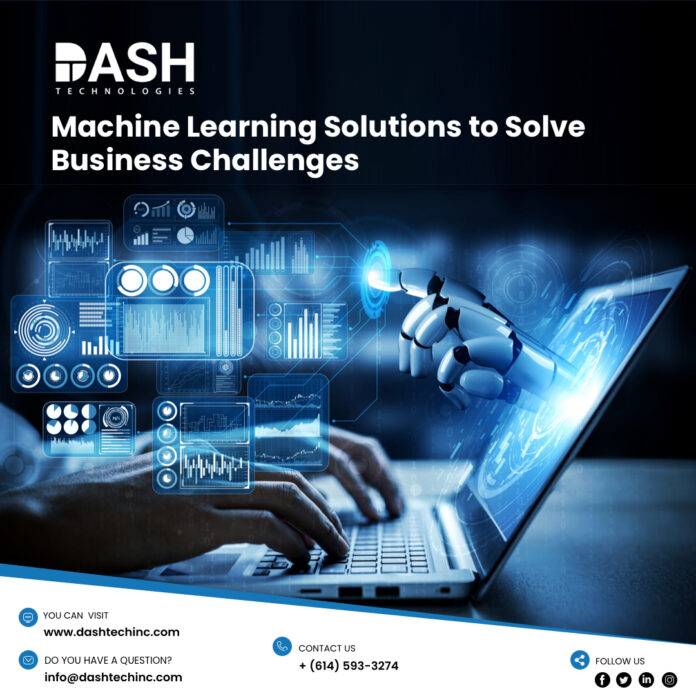
Artificial intelligence (AI) and Machine learning (ML) have entered every sphere and industry. Both play a vital role in turning data into assets as part of accomplishing digital transformation, the adoption of digital technology to transform services or businesses, however, organizations must gain a deeper understanding of their place in the procedure to effectively leverage them for business and process transformations.
Machine learning is a dynamic application of artificial intelligence development in that it enables machines to learn and improve model accuracy levels. Machine learning is categorized into deep learning, reinforcement learning based on the capability of machine learning algorithms to relearn from experience. Machine learning deploys many theories and techniques from data science, including classification, categorization, clustering, trend analysis, anomaly detection, visualization, and decision-making.
Modern enterprises integrating AI advancement to digitally transform their business and operational models need to follow a three-step roadmap to find ways to leverage machine learning for data insights:
Step 1: Brainstorm the right use cases by asking yourself what your data could tell you.
Step 2: Set up your data analytics capabilities based on what you want your data to tell you.
Step 3: Deploy machine learning algorithms to find key insights.
What can Machine Learning do?
Machine learning is the capability of software systems to learn by studying data to detect patterns and/or by applying known rules to the data for processing. Some of the key areas where machine learning can help are:
- Classifying and cataloging information like transactions, accounts, companies, people, etc
- Predicting likely outcomes and/or deciding on actions by analyzing identified patterns
- Detecting previously unknown patterns and relationships within the data
- Detecting new, unusual, or unexpected behaviors and events from data
Machine learning software systems use specialized algorithms to understand the data and actions being handled by appropriate processes and learn how to improve those processes. As new observations of data, events, responses, and changes in the data environment are analyzed by algorithms, a machine’s performance is improved and refined.
What Does the Research Say?
Machine learning has had an enormous impact on business success. 75% of managers responding to a survey by Infosys said it played a significant role in their organization’s digital transformation. The normal amount of time managers spent executing day-to-day activities at the end of an AI-supported digital transformation was 84% less than for managers at organizations just beginning such a transformation, and that’s not all:
- 91% said AI helped organizations make processes more efficient
- 88% said that AI-led automation efforts freed up time for them to focus on more creative activities
- 85% said AI implementations were the biggest driver of productivity increases in their organizations
- 84% said AI simplifies their work
Why is Machine Learning so Important?
Today, data-driven decisions keep businesses running. Machine learning has a huge impact in analyzing corporate and customer data, enabling these organizations to make decisions that keep their businesses competitive. Machine learning solutions can provide real results to real-world problems in a scalable manner. Today, more and more industries are specializing in machine learning to positively impact their work through continuous research. Further, AI and ML are deemed to be the future of digital transformation and will dramatically change the world’s economy. Machine learning is already impacting industries at a remarkable rate and is expected to increase and make more progress in the next decade.
The key is Machine Learning
While AI is more focused on learning to deliver human-like intelligence, machine learning is focused on fulfilling and refining a task through data interpretation with or without human intervention.
Digital transformation is about re-engineering and rebuilding your business in the era of cloud, mobile, IoT, analytics, and ML/AI to improve processes, customer experiences, and decision outcomes. That is why machine learning is more relevant to digital transformation because it can automate time-consuming tasks so that people and businesses can have more time to innovate.











